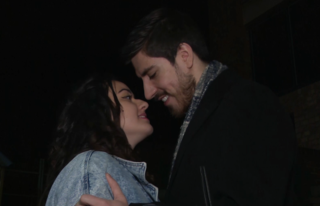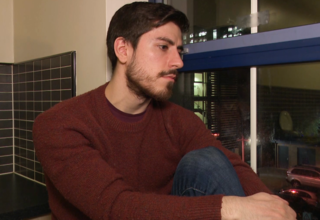Relationships
Had Enough of Silly Love Songs?
It turns out we can learn a lot about the science of love from romantic music.
Posted January 17, 2022 Reviewed by Davia Sills
“You’d think that people would have had enough of silly love songs,” sang Paul McCartney.
He was responding to John Lennon, who, when the Beatles broke up, told the world, “All Paul ever wrote were silly love longs.”
But maybe some love songs aren’t that silly? Maybe they’re telling us more about the realities of romantic love than we realize?
Here are five examples.
Can’t Help Falling in Love (George Weiss/Hugo Peretti/Luigi Creatore)
Like a river flows
Surely to the sea
Darling, so it goes
Some things are meant to be
The idea that you can’t help falling in love has a lot going for it, and the analogy of a river flowing to the sea is a good one. When you talk to people about their experiences falling in love, that’s what lots of them tell you: They felt they were swept away; they weren’t in control; it felt like it was “meant to be.”
Neuroscience suggests this is because although you are aware you’re falling in love, the powerful emotions are being driven by your unconscious brain.
It seems we’re hardwired to fall in love. Evolutionary neuroscience suggests that it evolved over millions of years to get humans to focus on a specific partner so they’d stay together long enough to care for offspring, who were becoming dependent for longer.
What we now call “falling in love” is the legacy of that drive, and we really can’t help it.

I’m So Excited (June Pointer/Anita Pointer/Ruth Pointer/Trevor Lawrence)
I’m so excited, and I just can’t hide it
And I know, I know, I know, I know, I know I want you.
This Pointer Sisters song brilliantly captures the breathtaking excitement of falling in love. But why is falling in love so exciting? Simply put, there’s a sudden chemical explosion in your brain, which the relatively new science of love is beginning to piece together.
When people newly in love are asked to look at pictures of their beloved, or just think about them, MRI imaging shows that the brain’s reward system is activated. Recognizing a reward in the making, the ventral tegmental area buried deep in the brainstem begins spraying dopamine neurons to the brain’s higher-level reward centers, which detect and motivate the pursuit of rewards.
The flood of dopamine and norepinephrine triggers arousal, the racing heart, the sweaty palms, and the elation. At the same time, oxytocin is released from the pituitary gland, and this elevates your mood and deepens feelings of bonding to your new love.
“Both dopamine and oxytocin make you feel amazing,” says love researcher Anna Machin from Oxford University. “Oxytocin makes you feel happy, relaxed, and calm; and dopamine is your general reward chemical. You’re doing something you really enjoy, and you want more.”
In this way, falling in love can be like an addiction.
And it’s no surprise that the brain of someone newly in love looks similar to one on cocaine.
The Best (Holly Knight/Mark Chapman)
You’re simply the best
Better than all the rest
Better than anyone,
Anyone I ever met
Tina Turner is singing about a common experience of falling in love. Your new love really is better than anyone you’ve ever met. They can do no wrong.
As Laura Mucha, author of Love Factually, puts it, “You ignore all the flaws, you idealize them, and you project whatever you like on to them, because you don’t know them really and so you’re free to paint them as the most perfect being ever.”
But why does your new love seem so perfect, so faultless?
Neuroscience has found that the chemical explosion of falling in love also causes deactivation in parts of the prefrontal cortex associated with “mentalizing” and being able to judge the actions of others. Your critical faculties are being drugged by infatuation.
“Your friends might be telling you that this person is completely wrong for you,” says Anna Machin. “But you can’t see it because the area of your brain that makes judgments isn’t working. So, love is a form of blindness, a form of madness.”
And your new love is simply the best. For a while, at least.

Love Hurts (Boudleaux Bryant)
Love is like a flame
It burns you when it’s hot
Love hurts
Ooh, ooh, love hurts
“Almost nobody gets out of love alive,” wrote love researcher Helen Fisher. In her survey, over 90 percent of respondents said they’d been rejected by someone they loved.
Bryant’s song compares the pain of lost love to physical pain. And this is much closer to the truth than we once thought. Recent research has found that the anterior cingulate cortex, which is important for the perception of acute and chronic pain, is also active in processing emotional pain.
And the emotional pain of lost love can’t be soothed by medication or surgery. In fact, it’s likely to get worse.
“When you’ve been dumped,” says Helen Fisher, “you just love them harder.”
The hurt of love can last a long time, and sometimes it never really goes away.
Still the One (John Hall/Johanna Hall)
We’ve been together since way back when
Sometimes I never want to see you again
But I want you to know, after all these years,
You’re still the one I want whisperin’ in my ear
Of course, the crazy, wonderful madness of falling in love doesn’t last. It can’t. It wasn’t meant to. Brain chemistry settles down, and the prefrontal cortex switches back on. The mists clear, and you get to see who you’ve actually fallen in love with.
You may be horrified and ask yourself, what were you thinking? (You weren’t.).
You tell yourself you must have been crazy. (You were.)
But sometimes, the relationship may evolve into a different form of love that researchers call attachment. “That’s arguably what love is,” says Anna Machin. “It’s that attachment stage where you build a deep relationship with this person.”
“Falling in love is not really a choice,” says Laura Mucha. “It’s really easy. And it is exciting. But what actually makes a relationship last is choosing to stand in it.”
And if your love is Still the One, it’s now based on reality rather than addiction, illusion, and imagination.
Post-Script
Paul and Linda McCartney's Silly Love Songs ends with a question.
Some people want to fill the world with silly love songs.
What’s wrong with that?
Nothing at all.
They help us celebrate the crazy excitement of falling in love, cope with the pain of lost love, and offer hope that, if you’re very lucky, this time, it will last.




